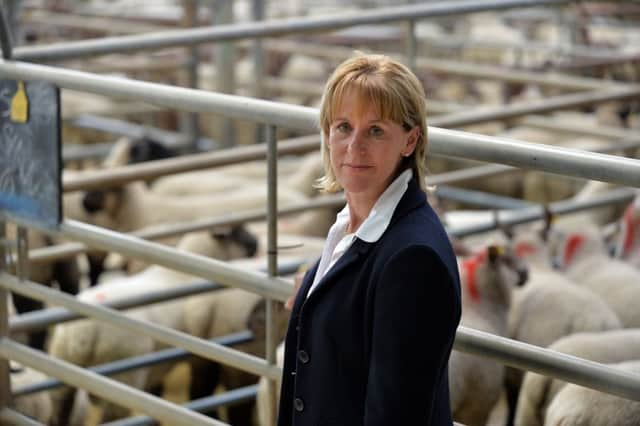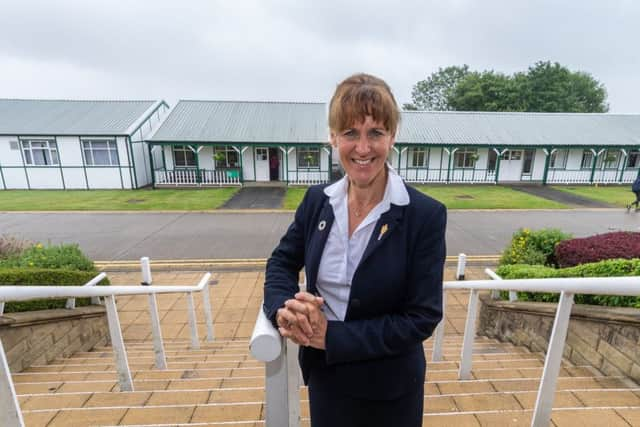Brexit must not lead to a loss of food standards, says leader of National Farmers’ Union


After a few false starts, the UK is finally leaving the European Union, but anyone hoping that “getting it done” will put an end to the whole issue is likely to be disappointed.
Starting this weekend, the Government will have until the end of the year to hammer out a trade deal with the EU, and presumably only then will have time to concentrate on further deals with other countries. Even with the best will in the world – which may or may not be forthcoming – it’s going to be a long haul.
Advertisement
Hide AdAdvertisement
Hide AdFarmers, though, are used to taking the long view – their job tends to require it – so Minette Batters’ opinion on the subject is well worth knowing.


As president of the National Farmers’ Union, she represents a constituency that – contrary to the EU-hating stereotype – is every bit as riven by differences of political opinion as the rest of the country. This is, after all, a matter of crucial importance to the farming sector. Nearly three-quarters of UK agri-food imports come from the rest of the EU at a cost of around €40bn, and over two-thirds of UK food exports go to the EU, bringing in about €16bn.
Prior to the 2016 Referendum, a survey by the NFU found that 52 per cent of members wanted the UK to remain in the EU, but a Farmers’ Weekly poll later found that 53 per cent of farmers ended up voting to leave – results roughly in line with broader public sentiment.
Having added its voice four years ago to the campaign to remain in the EU, the NFU now accepts the result, but is adamant that the UK must not leave without a deal.
Advertisement
Hide AdAdvertisement
Hide AdMs Batters told Yorkshire Vision that Brexit has to be regarded as an opportunity, but cautioned: “If we decided to bypass the European relationship, leave without a deal and go and negotiate other deals that agriculture is not a part of, that would be absolutely disastrous for British agriculture.
“It would be no different to what happened in the past – the repeal of the Corn Laws – whereby we opened our doors to the rest of the world, we didn’t prioritise what we can produce well and sustainably here, and we plummeted to 30 per cent self-sufficiency. Now, that risk is there if we don’t enshrine our standards on the statue books.”
While many Brexiters have pointed to cheaper food imports – and hence lower prices for consumers – as being a potential benefit of leaving the EU, Ms Batters has campaigned vigorously for the retention of current food standards, meaning that hormone-fed beef and chlorinated chicken – both of which are normal practice in the cut-price US food supply chain – would remain outlawed in the UK, and prices would remain stable.
“At the moment, we have a lot of words, a lot of talk, about our standards here,” she said. “What we don’t have is clarity of thinking of what imports of food will look like in the post-Brexit world, and that really is the most important thing that needs answering.”
Advertisement
Hide AdAdvertisement
Hide AdLeaving the EU, of course, also means an end to the UK’s involvement with the Common Agricultural Policy (CAP), the Union’s complex system of quotas and subsidies which, since its introduction in 1962, has both been lauded for ensuring Europe’s food supply, promoting diversity of produce, safeguarding rural communities and protecting the environment, and criticised for encouraging waste, corruption, higher food prices and undercutting farmers in developing countries.
So enmeshed in CAP is British agriculture that until recently it was hard to imagine what the sector may look like in a post-Brexit world. But that changed earlier this month with the reintroduction to Parliament of the Government’s landmark Agriculture Bill, which had been shelved last year due to Brexit.
Ms Batters has insisted that any new policy platform must be based on three pillars: protecting the environment; increasing productivity; and boosting supply-chain transparency to help farmers get fairer farm-gate prices for their produce.
The bill addresses all these points, with a focus on soil health, help to improve farmers’ negotiating position, and the phasing out of the current subsidy system of Direct Payments – which pay farmers for the total amount of land farmed – in favour of a new system that rewards them for “public goods”, such as better air and water quality, higher animal welfare standards, improved access to the countryside or measures to reduce flooding.
Advertisement
Hide AdAdvertisement
Hide AdMs Batters said: “I’m pleased that the Government has clearly listened to many of the concerns we raised with the Bill in the last Parliament and has acted to ensure the vital role of farmers as food producers is properly valued.
“However, farmers across the country will still want to see legislation underpinning the Government’s assurances that they will not allow the imports of food produced to standards that would be illegal here through future trade deals.”
The NFU is an influential organisation, but it is far from all-powerful. After all, it recommended remaining in the UK, but most farmers voted to leave. It now campaigns against a no-deal Brexit, but a Farmers’ Weekly poll in September suggested as many as 43 per cent of farmers would be happy with no deal. (Interestingly, the approval rating for this option was lowest by far in Yorkshire and the Humber, where just 13 per cent backed “no deal”.)
Yet it has been said that farmers are optimists – otherwise they wouldn’t be farmers – so is Ms Batters optimistic about the future of farming in the UK?
Advertisement
Hide AdAdvertisement
Hide Ad“Yes, I am,” she said, without hesitation. “We have over 60 million people here that all need to eat three times a day. On that basis, in both roles – producing food or caring for our iconic landscape – you need a farmer. So I am hopeful, but I think we have to go into this with our eyes open and make sure we set the baseline for what the future needs to look like.”